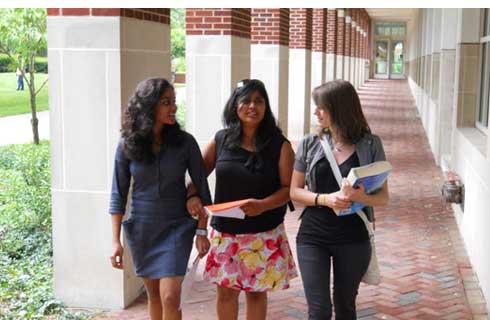- IDP China>
- 课程库>
- 工程与技术>
- 工程>
- 工业工程>
- Master of Science in Industrial Engineering - Sustainability Engineering
工业工程理学硕士-可持续工程
Master of Science in Industrial Engineering - Sustainability Engineering

学历文凭
Masters Degree

专业院系
Industrial, Manufacturing and Systems Engineering

开学时间

课程时长

课程学费

国际学生入学条件
Students apply through the Graduate School, submitting an application form and the following supporting materials:
Official transcripts of all previous academic work.
Applicants from countries where English is not the first language are required to demonstrate English proficiency.
Personal Statement of Purpose
Two letters of Recommendation
If you did not attend high school in the United States and your most recent institution of learning was not located in an English-speaking country, UTEP requires you to provide evidence of English-language proficiency. Minimum score 550 on the paper-based (pBT) TOEFL. Some programs require 600 or better. Minimum score of 79 on the internet-based test (iBT), and minimum of 6.5 on IELTS.
IDP—雅思考试联合主办方

雅思考试总分
6.5
- 雅思总分:6.5
- 托福网考总分:79
- 托福笔试总分:550
- 其他语言考试:Pearson PTE - Minimum score of 53
CRICOS代码:
申请截止日期: 请与IDP联系 以获取详细信息。
课程简介
The engineering of sustainable systems involves the process of designing or operating systems such that they use energy and resources sustainably, i.e., at a rate that does not compromise the natural environment, or the ability of future generations to meet their own needs. Areas that can benefit from sustainability engineering include: water supply, food production, housing and shelter, sanitation and waste management, energy development, transportation, industrial processing, development of natural resources, cleaning up polluted waste sites, sitting and planning projects to reduce environmental and social impacts, restoring natural environments such as forests, lakes, streams, and wetlands, improving industrial processes to eliminate waste and reduce consumption, and recommending the appropriate and innovative use of technology.
相关申请
 预科
预科 奖学金
奖学金 实习机会
实习机会 在校学习
在校学习 跨境学习
跨境学习 校园授课-线上开始
校园授课-线上开始 在线/远程学习
在线/远程学习
开学时间&学费
学费信息仅供参考,请与IDP联系以获取详细信息
| 开学时间 | 时长 | 学费 | 地点 |
|---|
学校排名

世界排名601
数据源:
泰晤士高等教育世界大学排名
本校相关课程

Doctor of Philosophy in Rhetoric and Composition
学历文凭
Ph.D.
开学日期
课程费用总额


Doctor of Philosophy in Psychology
学历文凭
Ph.D.
开学日期
课程费用总额


历史哲学博士
学历文凭
Ph.D.
开学日期
课程费用总额


Doctor of Physical Therapy
学历文凭
Ph.D.
开学日期
课程费用总额


Doctor of Philosophy in Teaching, Learning, and Culture
学历文凭
Ph.D.
开学日期
课程费用总额


Doctor of Philosophy in Interdisciplinary Health Sciences
学历文凭
Ph.D.
开学日期
课程费用总额

其他相关课程

机械与机电工程专业哲学博士-纳米技术
 滑铁卢大学
滑铁卢大学学历文凭
Ph.D.
开学日期
课程费用总额


机械和机电一体化工程应用科学硕士-纳米技术
 滑铁卢大学
滑铁卢大学学历文凭
Masters Degree
开学日期
课程费用总额


机械与机电工程应用科学硕士
 滑铁卢大学
滑铁卢大学学历文凭
Masters Degree
开学日期
课程费用总额


工业工程哲学博士
 达尔豪斯大学
达尔豪斯大学学历文凭
Ph.D.
开学日期
课程费用总额


机械工程哲学博士
 达尔豪斯大学
达尔豪斯大学学历文凭
Ph.D.
开学日期
课程费用总额


机械工程应用科学硕士
 达尔豪斯大学
达尔豪斯大学学历文凭
Masters Degree
开学日期
课程费用总额










 美国
美国
